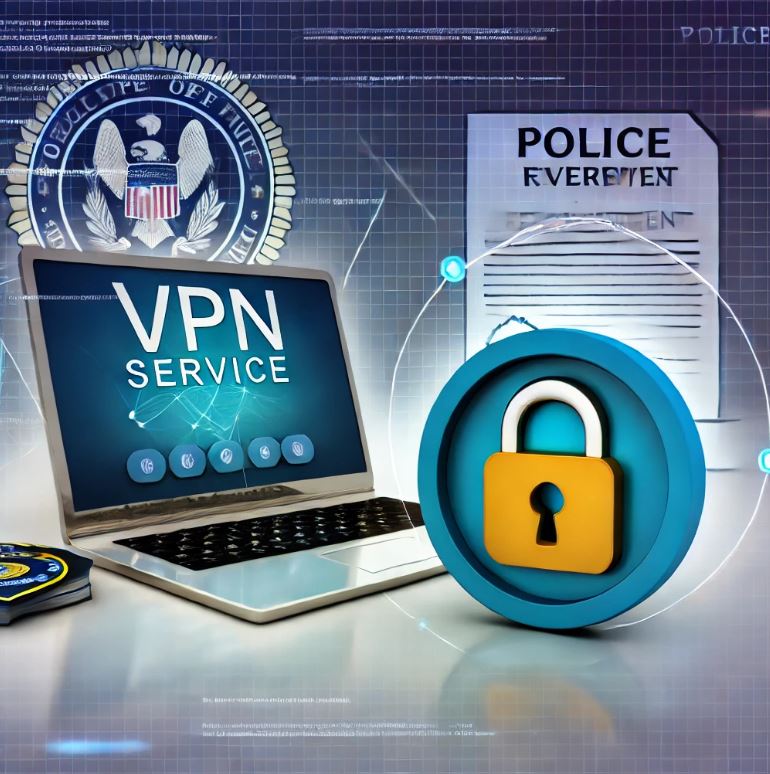When it comes to online privacy, Virtual Private Networks (VPNs) are often seen as the ultimate tool for keeping your activities hidden from prying eyes. However, not all VPNs maintain the same security standards or approach user privacy in the same way. A critical aspect to consider is how VPNs handle data requests from law enforcement and government agencies. Understanding this can help you make informed decisions about your privacy and security online.
Key Takeaways
- Law enforcement requests for VPN logs are not uncommon, but responses vary by provider.
- Major VPNs often receive hundreds of data requests annually, primarily related to copyright violations and other illegal activities.
- Transparency reports and no-logs policies are essential tools for assessing a VPN’s reliability.
Choose a safe VPN, such as NordVPN, if you are worried about your information getting leaked into the wrong hands.
VPN Warrants and Data Request Handling
Types of Data Requests
VPN providers typically receive two main types of data requests:
- DMCA (Digital Millennium Copyright Act) Requests: These are the most common, often numbering in the tens of thousands per month.
- Law Enforcement Requests: These are less frequent, averaging a few per week to one per day for the largest VPN companies.
How VPNs Respond
Responses to these requests vary. While some VPNs maintain strict no-logs policies and cannot provide user data, others may comply under certain circumstances. For instance, ExpressVPN reported receiving 194 government and police requests from July to December 2023, while NordVPN received 81 such inquiries from January to April 2024. Both companies claim none of these requests resulted in the disclosure of user information.
Recent Developments in VPN Transparency
As of June 20, 2024, VPN services are increasingly transparent about their data handling practices. Major providers like ExpressVPN, NordVPN, Private Internet Access (PIA), and CyberGhost publish regular transparency reports. These reports detail the number and types of data requests received and how they were handled. This transparency is crucial for building user trust and ensuring accountability.
Top Experts and Entities in VPN Technology
Trend Micro
Trend Micro is a leading cybersecurity firm that provides extensive research on cyber threats, including VPN-related issues. Their insights are invaluable for understanding the complexities of online privacy and security.
Cybersecurity Ventures
Cybersecurity Ventures regularly publishes reports on the state of cybersecurity, offering deep dives into the practices and policies of VPN providers. Their research helps users make informed decisions about which services to trust.
ExpressVPN
ExpressVPN is renowned for its commitment to privacy, demonstrated by its no-logs policy and transparency reports. In 2017, Turkish authorities seized ExpressVPN servers, but no user data was compromised, bolstering their reputation.
How to Choose a Safer VPN
When selecting a VPN, prioritize those with:
- Strict No-Logs Policies: Ensure the provider does not store user data.
- Independent Security Audits: Look for providers that undergo regular audits by third parties.
- Privacy-Friendly Jurisdictions: Choose VPNs based in countries with strong privacy laws.
- Ownership of Servers: Opt for providers that own their servers and use RAM-only storage to enhance security.
Historical Examples
Instances where VPN providers have handled data requests include:
- IPVanish (2016): Initially claimed no data was available but later provided user data to the Department of Homeland Security.
- PureVPN (2017): Secretly collaborated with the FBI to provide user IP addresses, leading to arrests.
Conclusion
Understanding how VPNs handle data requests from law enforcement is crucial for safeguarding your privacy. By choosing a VPN with strong privacy practices, regular transparency reports, and a solid no-logs policy, you can ensure your online activities remain secure and private.
Authorship
This article is authored by VPNSauce, an expert in the field of VPN technology and online privacy for many years. For more insights and updates, visit VPNSauce.com.


